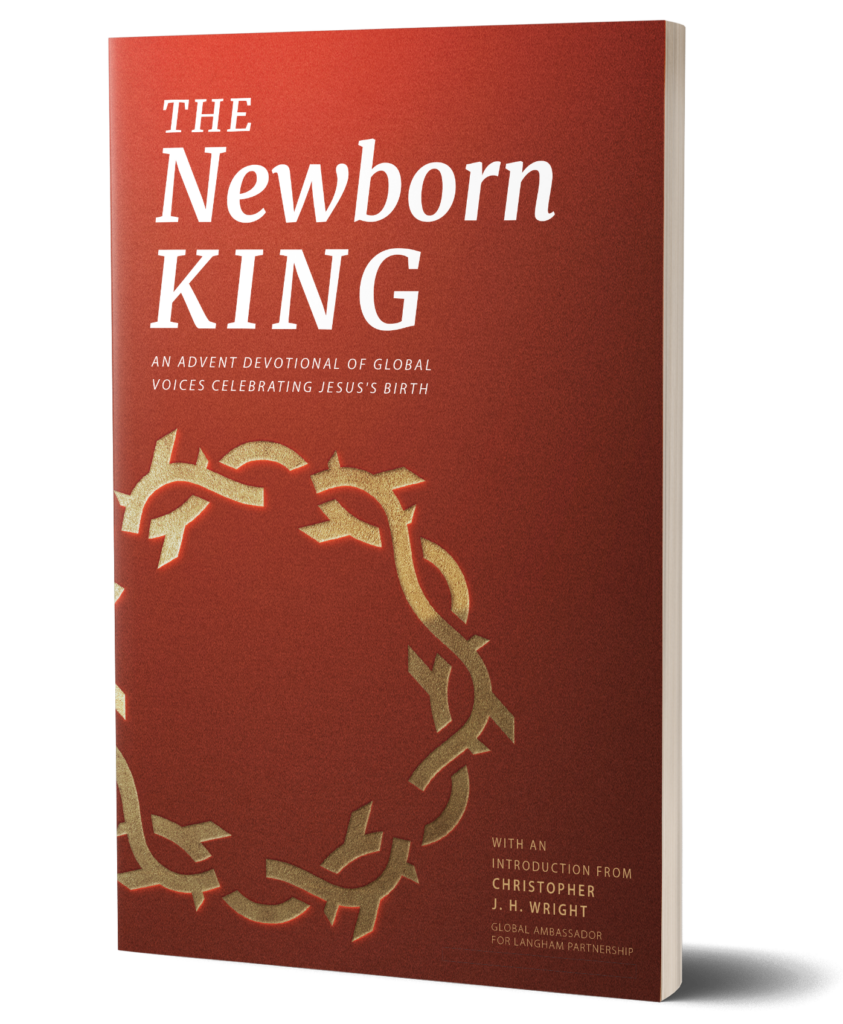An Advent Devotional from a Global Church Leader

The Glory of the Lord According to the Angel of the Lord and a Multitude of the Heavenly Host
Chwała Pana według anioła Pańskiego i mnóstwo wojsk niebieskich.
Polish | Luke 2:8–15
Glory to God in the highest heaven, and on earth peace to those on whom his favor rests. – Luke 2:14
By Dr. Dariusz Bryćko
The triumphalism of the proclamation, first by the angel and then by the multitude of the heavenly host, would be nothing but an ironic cackle if it were to be understood in political or military terms or even in terms of personal health and wealth. Any novice reader of the New Testament will quickly realize that the long–awaited Jewish Messiah did not bring political liberation from Roman occupation, repentance by corrupt Jewish clergy, or prosperity for Christ–followers. Instead, it brought poverty, persecution, and often death. John the Baptist gets beheaded by the ungodly traitor king at the capricious wish of a wicked girl, Jesus is crucified after an unjust mock trial, and, later, the apostles and early Christians are harshly persecuted and martyred.
Yet the angels announce joy and peace. What joy? What peace? Many of us continue to ask these questions because we confuse political, military, and even cultural triumphalism with the message of joy and peace proclaimed to the shepherds. A great lesson the disciples had to learn was that Jesus had no aspirations to become a political leader who would liberate Jews from Rome and reinstate the old Davidic glory of a mighty, powerful Israel. Jesus could have cashed in on his popularity, starting a military revolt to overthrow the corrupt Herod, but He didn’t.
Instead …
Any of us today who demand peaceful lives in “Christian countries” fail to recognize what it means to be true Christians living between Christ’s first and second advent. We fail to understand what the angels proclaimed and what Christ so explicitly taught in the Sermon on the Mount. We are like the mother of the sons of Zebedee who wanted her boys to take prominent political positions once Jesus entered Jerusalem, took down Herod, and assumed the Davidic throne. Yet nothing could have been farther from Jesus’s purpose. The whole point of His birth in a stable to a poor, provincial Jewish family and the angelic announcement before the shepherds was a loud, symbolic shout to the contrary.
For Luke’s Hellenistic readers, the angelic proclamation of peace could sound reminiscent of the pax augusta, for which Caesar Augustus was celebrated as a savior who ended all war. But the fact that the angels made their announcement to simple shepherds, instead of to the Roman army or Jewish insurrectionists, was a clear signal that this Messiah’s mission would be far greater than challenging the political status quo.
His greater mission was to initiate the messianic age by reconciling mankind with God, removing God’s wrath and man’s guilt, and ultimately conquering death. Through Christ’s atoning work, humans could cease to be at war with God. Thus, Jesus’s ministry was aimed at directing peoples’ hearts vertically towards heaven, not horizontally towards Rome.
The angelic heavenly army understood this well. For thousands of years, they had been assisting man’s struggle with sin and Satan, through the rise and fall of countless leaders and kingdoms. They knew that God’s intervention in Jesus was so grand that there could be no other option but victory. It’s as if they couldn’t help themselves as they burst from the sky announcing the full implications of the arriving messianic age in a non–threatening way, one consistent with the non–military nature of the first advent.
The messianic mission also brings joy and peace due to its inclusive character. The salvation plan will apply not only to the Jews but will extend beyond the narrow boundaries of the chosen nation. Messiah comes to those whom God first chose, but His coming extends His blessing through Abraham’s offspring far beyond what the shepherds might have imagined, to every tribe and tongue—to any and all who will follow the Messiah alone in all His teachings.
So, yes, joy and peace. We are reconciled to God through Christ. Glory to God in the highest! God does not count our sin against us, and we are no longer enslaved to guilt and awaiting God’s wrath. We have peace with God. May we today do the “ministry of reconciliation” and be true “ambassadors for Christ,” making His appeal (2 Corinthians 5:19–21) and patiently awaiting Christ’s second Advent, which will be horizontal, political, and even military, bringing the physical peace which we continue to long for in these turbulent times.

Excerpted from the The Newborn King — an Advent devotional of global voices celebrating Jesus’s birth.

Dr. Dariusz Bryćko is a Langham Scholar who lives in Warsaw, Poland, and is Founder and President of Instytut Tolle Lege, a study center committed to recovering Poland’s forgotten Protestant heritage and spreading the doctrines of grace. He also shepherds the Warsaw church plant of the Evangelical Reformed Church of Lithuania.

[…] Read more: An Advent devotional from a church leader in Poland […]